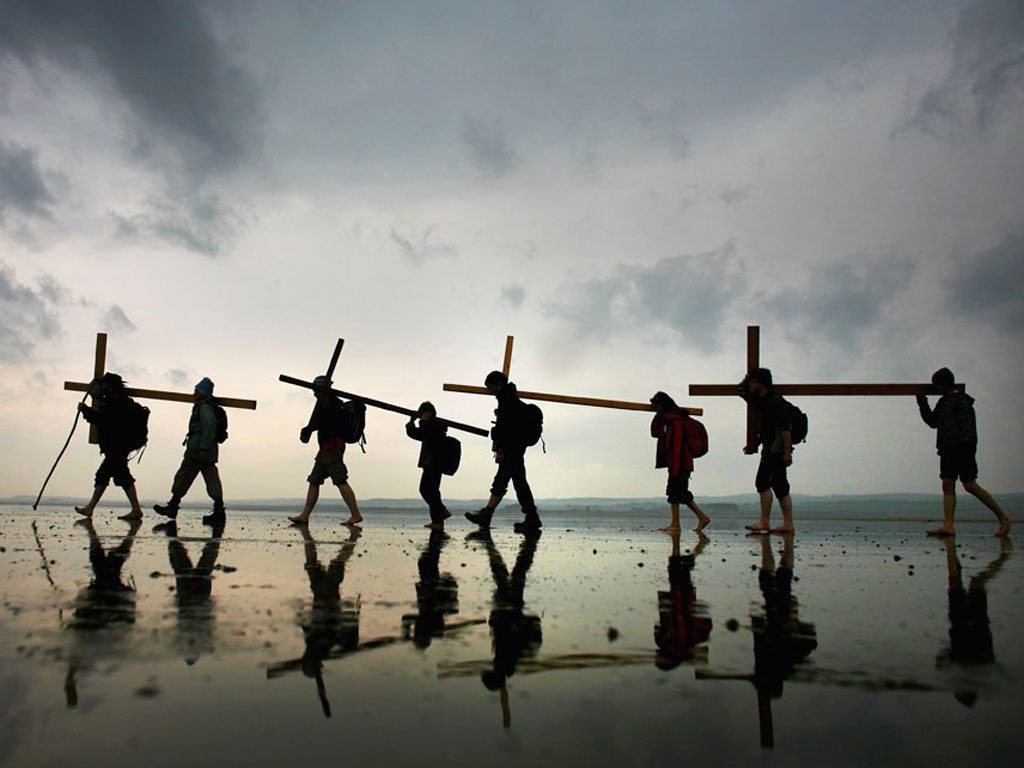
by George Clifford
The focus of the Café’s Magazine for April is captured in these questions:
What is the relation of the Church, Government, and the American Experience? Where is the church called to be in these tense political times – a place of activism or a refuge from political rhetoric? Have we been hobbled by our declining influence or set free from our shackles to the establishment?
Those questions reminded me of William Stringfellow’s book title, An Ethic for Christians and Other Aliens in a Strange Land. I increasingly feel that I live in a strange land. Political polarization has displaced the mutual respect and compromise essential for democracy to protect the rights of the minority and the majority. Physical isolation with people connecting via social media has become the new norm, causing many communal organizations (including religious congregations) to wither and die. Growing economic inequality has overwhelmed commitment to promoting economic opportunity for all. We fight wars with ill-defined objectives using borrowed funds, leaving the debt to our children as part of their inheritance. Impetuous narcissism and self-interest rather than servant leadership now characterize many who occupy positions of power and influence.
Where is the Church, and most particularly The Episcopal Church (TEC), to be found in this strange land?
Jesus was the face and voice of justice in an unjust world. Yet too frequently our voice is muted. We may be seen but not heard. Our Presiding Bishop speaks loudly, prophetically, and whenever possible from a national platform. He is an exception. A majority of our diocesan bishops speak softly or are silent. Some of our parish clergy preach the gospel boldly, but few carry that message to their larger community through personal advocacy and witness.
Jesus welcomed everyone – the foreigner, the Jew, the oppressed, the outcast, and the sinner. Yet too frequently our avowed inclusivity contains an unspoken exclusivity. Some parishes emphasize activism; other parishes emphasize being a refuge from political rhetoric. Few parishes provide space for both activists and those seeking refuge. Some parishes welcome liberals; other parishes welcome conservatives. Problematically, parishes, regardless of who they welcome, usually send mixed messages, communicating who they welcome through body language and code words that unintentionally, if not intentionally, exclude dissenters while verbally affirming that all are welcome.
Jesus exhorted his disciples to love God and their neighbor. He called disciples but did not form an organization. Yet too frequently our goal is to revive, or at least to sustain, the institutional church. Maintenance, not mission, is our real agenda. We need to pay our clergy. We need to maintain our buildings. And we want some money for programming. Whatever is left, and typically it is only a pittance, goes to mission beyond the parish. Parishes typically view the money that goes to the diocese as a burdensome “tax” rather than as an opportunity to engage in mission beyond the parish. Financial prudence and institutional self-preservation widely preclude risk taking that advocates for the vulnerable, aids the least among us, welcomes the stranger, cares for the earth, and otherwise proclaims the gospel.
My observation and pastoral experience is that people seek a congregation that intellectually challenges their spirituality and theology, emotionally both embraces them and offers a safe community in which to move toward wholeness, and provides multiple, diverse opportunities to work toward improving the world. In sum, a Jesus shaped community attracts followers. Such congregations, vibrant communities of aliens in a strange land, invariably grow. For them, institutional maintenance is a byproduct of their focus on mission.
We Christians are aliens living in a strange land. Without good leaders we will perish. Those persons and groups responsible for discerning whether God has called a person to serve as a bishop, priest, deacon, or warden must examine the person’s gifts for leadership. A call admittedly has many facets. However, in this crucial time for the Church, God surely calls very few if any persons who lack significant leadership gifts. The greater the scope of responsibility, the greater is the requirement for superior leadership.
Effective leadership in today’s Church includes these three essential elements:
- Effective leadership connotes a clear and passionate vision of mission shaped by Jesus’ teachings and ministry, a vision the person consistently and unrelentingly communicates in her or his own unmistakable, proven, and contextually appropriate voice.
- Effective leadership connotes a demonstrated, successful commitment to growing a loving Christian community.
- Effective leadership connotes an energetic engagement with the broader community, translating her or his vision into practice. Mission, not institutional maintenance, is the priority.
This emphasis on leadership does not deny the importance of other elements of ministry such as pastoral care and religious education. The reality, however, is that TEC is a denomination of small, aging congregations. Thus, most vicars and rectors have limited demands on their time for hospital visits, pastoral counseling, funerals, baptisms, or confirmand preparation. Too often, clergy spend time with friends among the congregation in ways that lack any discernible connection to the Church’s work. This time masquerades as genuine ministry. Small congregations similarly have limited requirements for religious education.
We have strong reasons to be optimistic about the future of the Church. God is on our side. Furthermore scholars who study pastoral leadership widely agree that one clergyperson can adequately serve a congregation of 500-700 people. Over half of all TEC congregations are smaller than a quarter of that size. A priest who recruits, trains, and then cedes canonically appropriate pastoral care and religious education ministries to the laity has ample time for exercising leadership that passionately communicates a vision, lovingly builds inclusive community, and vigorously engages in mission.
George Clifford, a priest in the Diocese of Hawai’i, served as a Navy chaplain for twenty-four years, has taught ethics and the philosophy of religion, and now blogs at Ethical Musings.

